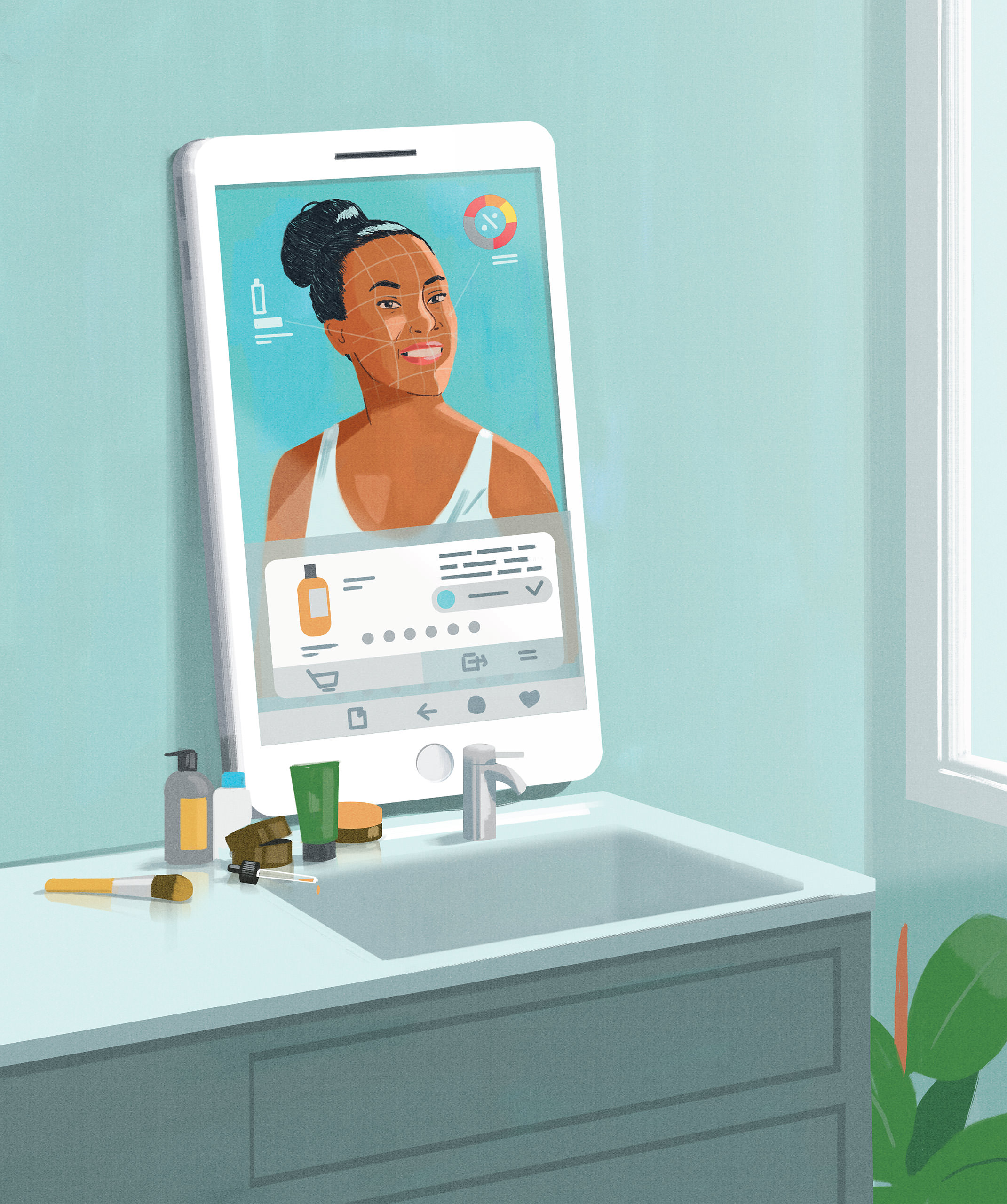Your skin is unique, so shouldn’t the serums, creams, and moisturizers you lather on it every day be customized? It’s a seductive idea: as a bespoke dress fits your body better, a custom beauty product should be targeted specifically to your skin’s needs. You get improved results with fewer lotions and potions—look better, with less effort and waste—and have the cachet of using a uniquely tailored product. Customized beauty promises a lot, but how much improvement can it deliver for your face?
It’s certainly a trend that’s catching on. A survey of beauty customers by The Benchmarking Company in 2019 found 82 per cent were interested in a skin-care regimen created just for them. In March 2022, the third Personalized Beauty Summit in San Francisco hosted representatives from companies including Shiseido, Unilever, Sephora, and Google.
Companies most commonly determine your specific needs by having you take an online questionnaire about your skin-care concerns, preferences, and lifestyle. They then devise products accordingly. But as dermatologist Dr. Angela Law points out, we aren’t necessarily the best judges of our own skin. “A lot of these questionnaire systems are based on artificial intelligence,” she says. “The formulas are calculated based on the way you answer the questions, but you can’t really replace the personal touch of having your skin assessed by an expert.” Dermatologists often prescribe customized compounded lotions, creams, or ointments. Law (who works at Dermapure Vancouver) prescribes compounded topicals to meet patients’ needs and based on their tolerance—something that requires individualized assessment by a doctor, she argues. A multiple-choice quiz will not do.
Some brands go beyond simple Q&As by offering paper strips that gauge skin pH, moisture level, and oiliness. But given that those factors can change through the day depending on how recently you’ve washed your face or applied skin-care products, how much useful information can this approach really deliver?
Gene-based skin care makes ingredient recommendations based on the results from a home DNA kit. It’s a concept Law finds intriguing, though still not without problems. “Yes, your underlying genetic composition is important,” she says. “But what is your environment? What are your activities? What is your diet like? What are your stress levels? It’s not so simple as to say, ‘Give me your DNA or do this test and we can give you answers to unlock your skin-care potential.’ I wish it were.”
Genetics may play a part in how formulations are absorbed, she notes. “For example, certain ingredients may be better for people from different ethnic backgrounds. But there’s still a lot we don’t know.”
However your skin data is gathered, it’s pushed through an algorithm that works out the best product for you. Cosmetic chemist Jen Novakovich suggests that at best, this is a kind of semi-personalization. “Companies will have a base formulation to which they will add some ingredients based on the questions you’ve answered,” she explains. “But they can’t possibly be combining hundreds of ingredients to create a unique formula. They would have to stability and safety test every single iteration that is produced. That testing would cost thousands of dollars per product.”
But will personalization cut down on waste? As Novakovich points out, ingredients still have to be purchased in advance for when the computer says a customer might need them. Some of the boom in this trend, she adds, can probably be attributed to brands jumping on the tech bandwagon. There’s lots of investment to be had if you mention the word algorithm when pitching the money people.
In the end, what matters to consumers is simple: are these products likely to work better than those you can buy directly from a store or through a dermatologist? Dr. Law says probably not. “For the major skin needs that people have, you can get many products over the counter at drugstores, beauty counters, and physicians’ offices.” And, she adds, “when you have more severe disease, you may need prescription treatments.”
For now, the answer appears straightforward: pick the products you like that contain tried-and-tested active ingredients—for Law, antioxidants, retinol, and sunscreen are non-negotiable—and use them consistently.
No algorithm required.
Read more from our Autumn 2022 issue









